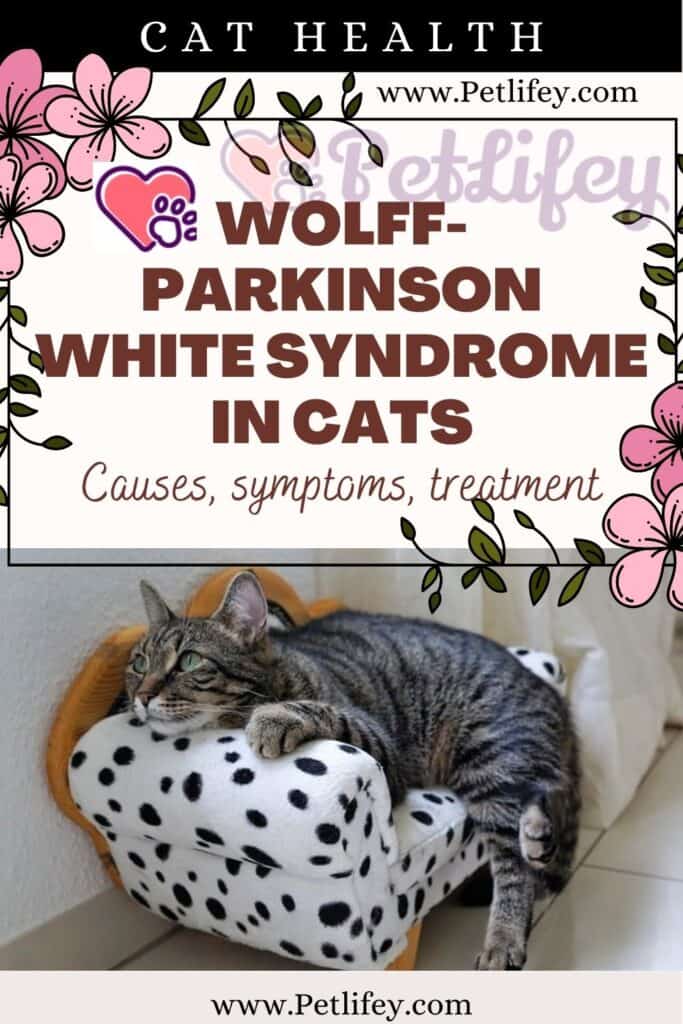Wolff-Parkinson White syndrome in cats, what is it? Let’s find out together what this rare and, unfortunately, serious disease that affects the feline consists.

Affection and concern for one’s pet feline are always on the same level. You are not always ready to dominate your emotions, knowing that the animal you live with is not well and that, perhaps, it has a very serious illness. It is a situation that, unfortunately, can affect anyone and we must arm ourselves with courage and react. Let’s talk about Wolff-Parkinson White Syndrome in cats, what it is specifically and how to act.
Wolff-Parkinson White syndrome in cats: what it is, causes and symptoms
It is a rare pathology that is also complex to diagnose in the feline. Furthermore, this syndrome does not manifest real clear symptoms and can cause many negative consequences for the pet. Let’s see better here in the article.
For our furry friend, there are complex diseases that are very difficult to notice over time. A rare disease that radically changes the life of the feline is Wolff-Parkinson White Syndrome. But what exactly is it and why is it so scary?
Wolff-Parkinson White Syndrome in cats is, precisely, a rare heart disease and can be both congenital and hereditary.
We are talking about a pathology discovered by the three scholars Wolff, Parkinson and White, who defined it as ventricular pre excitation. This expression indicates the impulses received by some ventricles that cause supraventricular tachycardia.
In practice, normally in the feline (as well as in us human beings) the electrical impulse to make the heart beat begins in the sinoatrial node and then is transmitted to the ventricles; this precise mechanism does not occur in the cat affected by this syndrome, causing a malfunction and heart weakness in the furry cat.
The severe syndrome can be either a congenital defect or is associated with other congenital heart diseases, such as hypertrophic cardiomyopathy in cats. There are some cat breeds that are more predisposed to this disease, such as the Ragdoll, the Maine Coon and the Persian cat.
The problem of the absence of symptoms in the hairy
This particular Feline Syndrome, unfortunately, does not manifest any symptoms in the cat during its initial phase. It is possible to notice its presence in the animal when its conditions become dramatic and its heart can no longer hold up.
When the Syndrome is in its advanced stage it presents these symptoms:
- Fast heart beat in cats
- Heart failure
- Respiratory problems in cats
- Lethargy
- Weakness and sudden fainting
The feline and heart disease: diagnosis, treatment and controls

The Wolff-Parkinson White Syndrome in cats is therefore difficult to identify and for this reason one must act seriously and seek the help of the veterinarian. Let’s see what the doctor can do to help the feline and why checks are important.
Because of its complexity and being dangerous for the very life of your cat, it is essential to entrust the expert eye of the animal doctor veterinarian, who will carry out visits regularly, during which is basic report any symptoms noted above.
Precisely describing the signs observed in the animal can help and save it; as well as inform the veterinarian about further heart disease or other ailments experienced before. The doctor will then ask for blood tests, complete blood counts, and urinalysis. But only through the electrocardiogram will it be possible to detect the Syndrome in him.
There is no specific cure for Wolff-Parkinson White Syndrome, as it all depends on the heart condition of the cat. You can help your cat move forward by administering medications to control heart rate and prevent blood clots.
The possibility of worsening of Wolff-Parkinson White Syndrome in cats
According to the health conditions of the cat, periodic checks will be established with the doctor in which the electrocardiogram will be carried out each time and it will be checked if the feline needs a new treatment with different drugs.
There is a terrible possibility that the animal’s health will deteriorate. In very severe cases, the cat may not be able to walk and stand in the foot .
These are signs that indicate an advanced stage of the Syndrome and it is absolutely necessary to consult with the veterinarian who followed him from the beginning.






